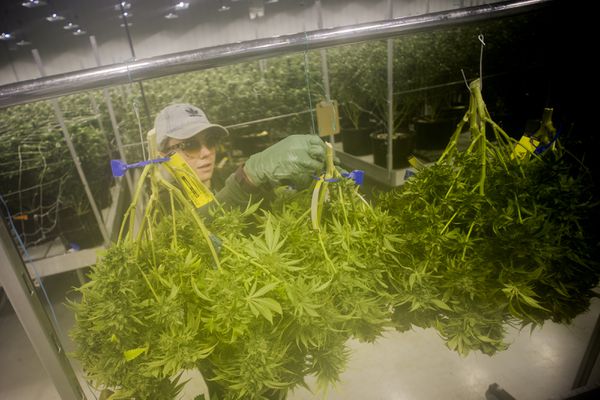Michigan officials are lowering financial barriers to entry for those interested in the state’s recreational marijuana economy.
For the past two years, medical marijuana businesses have had to prove to state regulators that they had from $200,000 to $500,000 in assets, depending on the type of license they were applying for. One-fourth of that had to be liquid.
“We always thought it was unfortunate because it served the purpose of keeping a lot of people out of the industry,” said Matt Abel, a lawyer with Cannabis Counsel in Detroit.
Now that regulators are about to launch the recreational marijuana market, they decided those capitalization requirements would not be valuable in the adult-use industry.
false
Michigan issues emergency recreational marijuana rules
The rules allow for home delivery, smoking lounges and consumption at festivals.
Marijuana Regulatory Agency Director Andrew Brisbo said the law voters approved in November 2018 doesn’t require capitalization requirements — and offers more licensing options for small businesses.
“I think it certainly creates an environment that’s inclusive in nature for businesses of all sizes,” Brisbo said.
Brisbo said the capitalization requirements for medical marijuana businesses could be revisited if the administrative rule set was officially revisited.
Wednesday the Marijuana Regulatory Agency released its emergency rule set for the adult-use industry, which included details on how cannabis products can be bought, sold and consumed. Industry experts predict the first retail sales likely won’t happen until the first quarter of 2020.
false
When can I buy marijuana in Michigan?
State officials issued rules for the recreational marijuana industry, but can’t yet answer the question.
The Michigan Cannabis Industry Association applauded the state’s decision to remove the capitalization requirements from the application process.
“We appreciate the hard work staff at the Marijuana Regulatory Agency put in to quickly develop these draft rules so that Michigan can get its adult use cannabis program online as soon as possible,” said Josh Hovey, spokesman for the association. “We particularly like that there are no capitalization requirements, which should help make licenses more accessible to small business owners.”
Licensing fees for recreational businesses will also be lower than those for medical businesses. For example, entry-level grow licenses cost $4,000 (for 100 plants) in the recreational industry and cost $10,000 (for 500 plants) in the medical industry. Additionally, a license for a retail store costs $20,000 to $30,000, depending on volume, in the recreational industry; whereas medical provisioning center licenses cost $66,000.
There also are more options for small businesses to enter the recreational market — especially for medical caregivers. If a caregiver is approved for a small-scale grower license or a microbusiness license, the Marijuana Regulatory Agency will allow them to bring all of their medical plants into their new adult-use business.
In the coming weeks agency officials will likely be releasing details on a social equity plan for the recreational market. According to the emergency rule set, that could include waiving or reducing application fees for qualified applicants from communities that have been disproportionately impacted by marijuana prohibition.
Credit: www.mlive.com

